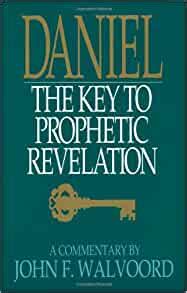A Quote by John F Walvoord
The work of redemption was accomplished by Christ in His death on the cross and has in view the payment of the price demanded by a holy God for the deliverance of the believer from the bondage and burden of sin. Inredemption the sinner is set free from his condemnation and slavery to sin.
Related Quotes
To be "in Christ" is to place one's trust in Him for salvation from sin. To be "in Christ" is to trust His goodness, not our own; to trust that His sacrificial death on the cross paid the complete debt of death we owe for our sin; to trust that His resurrection gives us eternal life instead of relying upon our own ability to please God. To be "in Christ" is to claim, by faith, the free gift of salvation. To be "in Christ" is to enjoy a completely restored relationship with our Father in heaven by virtue of His Son's righteous standing.
The believer's cross is no longer any and every kind of suffering, sickness, or tension, the bearing of which is demanded. The believer's cross must be, like his Lord's, the price of his social nonconformity. It is not, like sickness or catastrophe, an inexplicable, unpredictable suffering; it is the end of the path freely chosen after counting the cost. It is not, like Luther's or Thomas Muntzer's or Zinzendorf's or Kierkegaard's cross, an inward wrestling of the sensitive soul with self and sin; it is the social reality of representing in an unwilling world the Order to come.
Father God, thank You for having no condemnation for those who are in Christ Jesus, because through Christ Jesus the law of the Spirit of life set me free from the law of sin and death. For what the law was powerless to do in that it was weakened by the sinful nature, You did by sending Your own Son in the likeness of sinful man to be a sin offering. (Rom. 8:1-3) Help me to understand that the loving chastisement that might come to me after I have rebelled against You is only in the purest Father's love and is never to be confused with condemnation. (Heb. 12:6)
When my conscience under the Holy Spirit makes me aware of a specific sin I should at once call that sin sin and bring it consciously under the blood of Christ. Now it is covered and it is not honoring to the finished work of Jesus Christ to worry about it, as far as my relationship to God is concerned. Indeed, to worry about it is to do spite to the infinite value of the death of the Son of God. My fellowship with God is restored.
The cliché, God hates the sin but love the sinner, is false on the face of it and should be abandoned. Fourteen times in the first fifty Psalms alone, we are told that God hates the sinner, His wrath is on the liar, and so forth. In the Bible, the wrath of God rests both on the sin (Romans 1:18ff) and on the sinner (John 3:36).
Our own theory is that sin was ordained only in view of redemption, and that accordingly redemption shows forth as the gain bound up with sin; in comparison with which there can be no question whatever of mischief due to sin, for the merely gradual and imperfect unfolding of the power of the God-consciousness is one of the necessary conditions of the human stage of existence.
Some imaginations help to break the bondage of the rest. The whole universe is imagination, but one set of imaginations will cure another set. Those that tell us that there is sin and sorrow and death in the world are terrible. But the other set - thou art holy, there is God, there is no pain - these are good, and help to break the bondage of the others. The highest imagination that can break all the links of the chain is that of the Personal God.
Accommodation is a central aspect of the cross-centered interpretation of violent portraits of God that I'm advocating. Like everything else in Cross Vision, this concept is anchored in the cross. On the cross, God stoops to meet us, and to enter into solidarity with us, right where we are at, which is in bondage to sin and to Satan. And he does this to free us and to bring us where he wants us to be, which is united with him in Christ. The cross is thus the paradigmatic example of God mercifully stooping to accommodate people in their fallen conditioning.
Jesus Christ was the only one capable of performing the magnificent Atonement because He was the only perfect man and the Only Begotten Son of God the Father. He received His commission for this essential work from His Father before the world was established. His perfect mortal life devoid of sin, the shedding of His blood, His suffering in the garden and upon the cross, His voluntary death, and the Resurrection of His body from the tomb made possible a full Atonement for people of every generation and time.
It is my assumption that growth in faith is the root of all spiritual growth and is prior to all disciplines of works. True spirituality is not a superhuman religiosity; it is simply true humanity released from bondage to sin and renewed by the Holy Spirit. This is given to us as we grasp by faith the full content of Christ's redemptive work: freedom from the guilt and power of sin, and newness of life through the indwelling and outpouring of his Spirit.

































